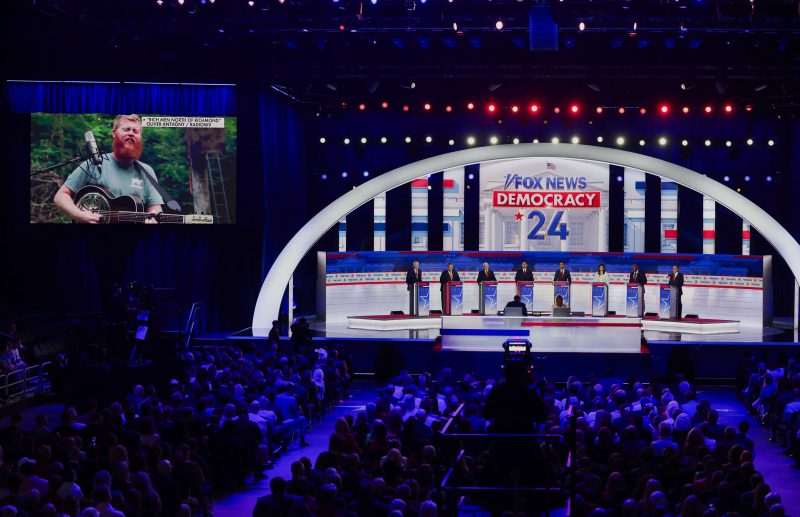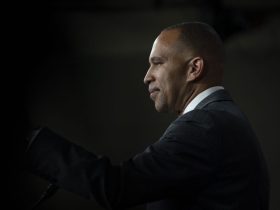It didn’t take long for Oliver Anthony’s song “Rich Men North of Richmond” to be celebrated as a new anthem for the American right. His criticisms of public assistance recipients and taxation, his references to an oppressive government — these echoed long-standing components of Republican rhetoric. So, before the first presidential debate of the Republican 2024 primary calendar, there was Anthony’s video, shown on a large screen before the debate crowd.
And then Anthony began speaking out. He criticized the use of his song at the debate, saying that he “wrote that song about those people” who were standing onstage. He expressed his support for the United States as a melting pot, saying that we should “harness” and “appreciate” our diversity. In short, he refused to be placed into one partisan bucket.
To many people, this came as a surprise. But it shouldn’t.
There are a number of regular surveys that evaluate Americans’ views on politics and social issues. One is Harvard University’s Cooperative Election Study (CES). It asks Americans about their views during federal election years, as it did in 2020.
We looked at six issue areas where there might be expected partisan division. Those were:
Ban assault rifles.Repeal the entire Affordable Care Act.Increase the number of patrols on the U.S.-Mexico border.Prohibit all abortions after the 20th week of pregnancy.Strengthen the Environmental Protection Agency’s enforcement of the Clean Air Act and Clean Water Act even if it costs U.S. jobs.Increase the number of police on the street by 10 percent, even if it means less funding for other public services.
We then tallied how often CES respondents stated agreement with the right-leaning position. How often, for example, they opposed banning assault rifles or supported repealing the Affordable Care Act (also known as Obamacare). What we found was that heterogeneity was the norm: Most people didn’t have opinions consistently aligned with or against the right-leaning position.
More than a third of American adults, in fact, held two to four of the right-leaning positions — more than held either zero or all six.
When those answers are broken out by party identification, you see more consistency among partisans. A plurality of Democrats subscribe to zero of the six right-leaning positions. A plurality of Republicans subscribe to all six. Among independents and members of third parties, views are fairly evenly distributed.
But even among partisans, there’s deviation from what might be expected. Only a third of Democrats reject the right-leaning position in all six cases. Only about a third of Republicans hold the right-leaning position all six times.
Meanwhile, large segments of both parties go the other direction. Almost 20 percent of Republicans hold three or fewer of the right-leaning positions on those issues. Just about a quarter of Democrats hold three or more.
This is necessarily cherry-picked, of course, relying on the questions asked in the CES. If we’re acknowledging the complexity of political opinions, we must also acknowledge that a clean up-or-down view of the questions themselves eliminates important nuance, as well.
It is nonetheless a good reminder: Americans are not as polarized on political opinions as it often may seem. Even among partisans, there’s diversity of views on policy and social issues.
So that singer whose song you champion? He may not end up being a great avatar for your political views after all.








